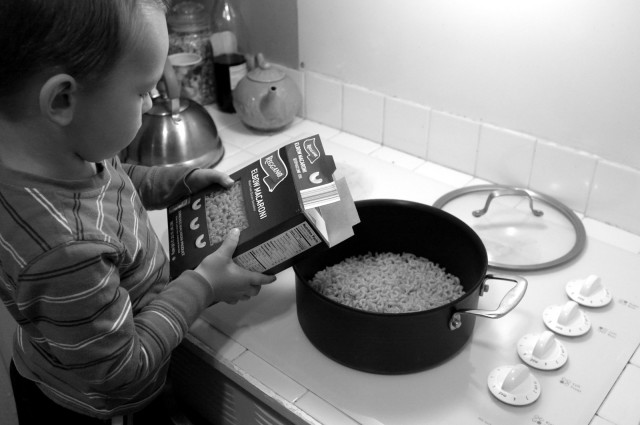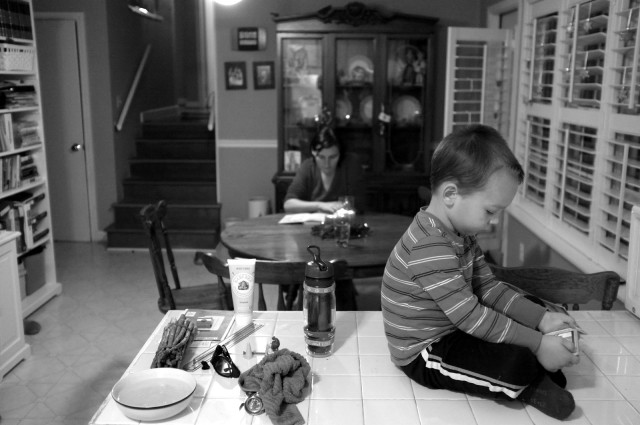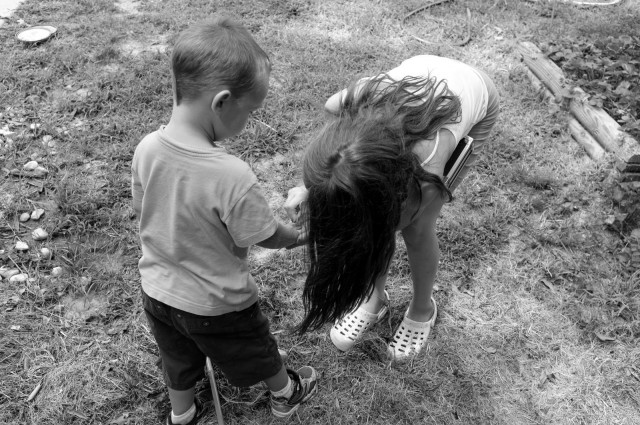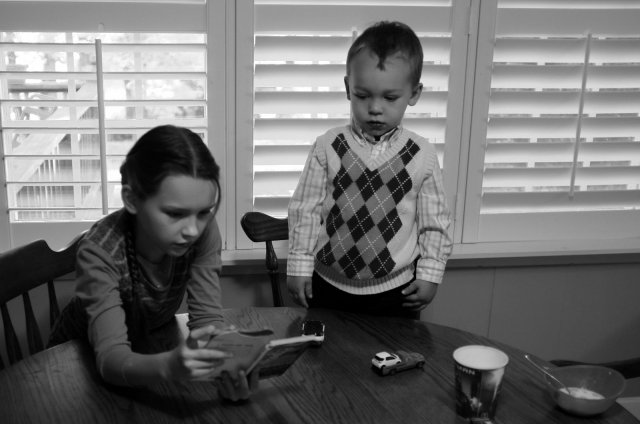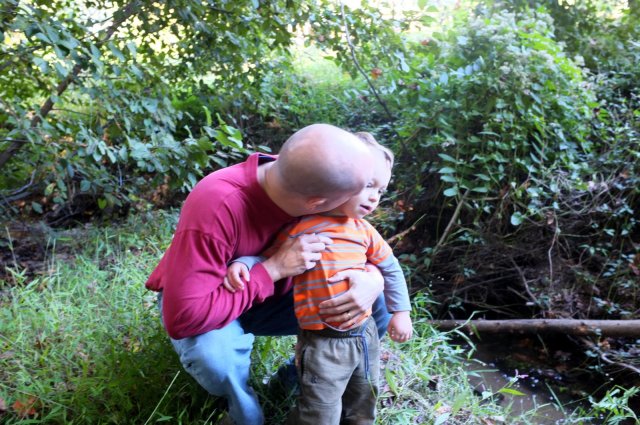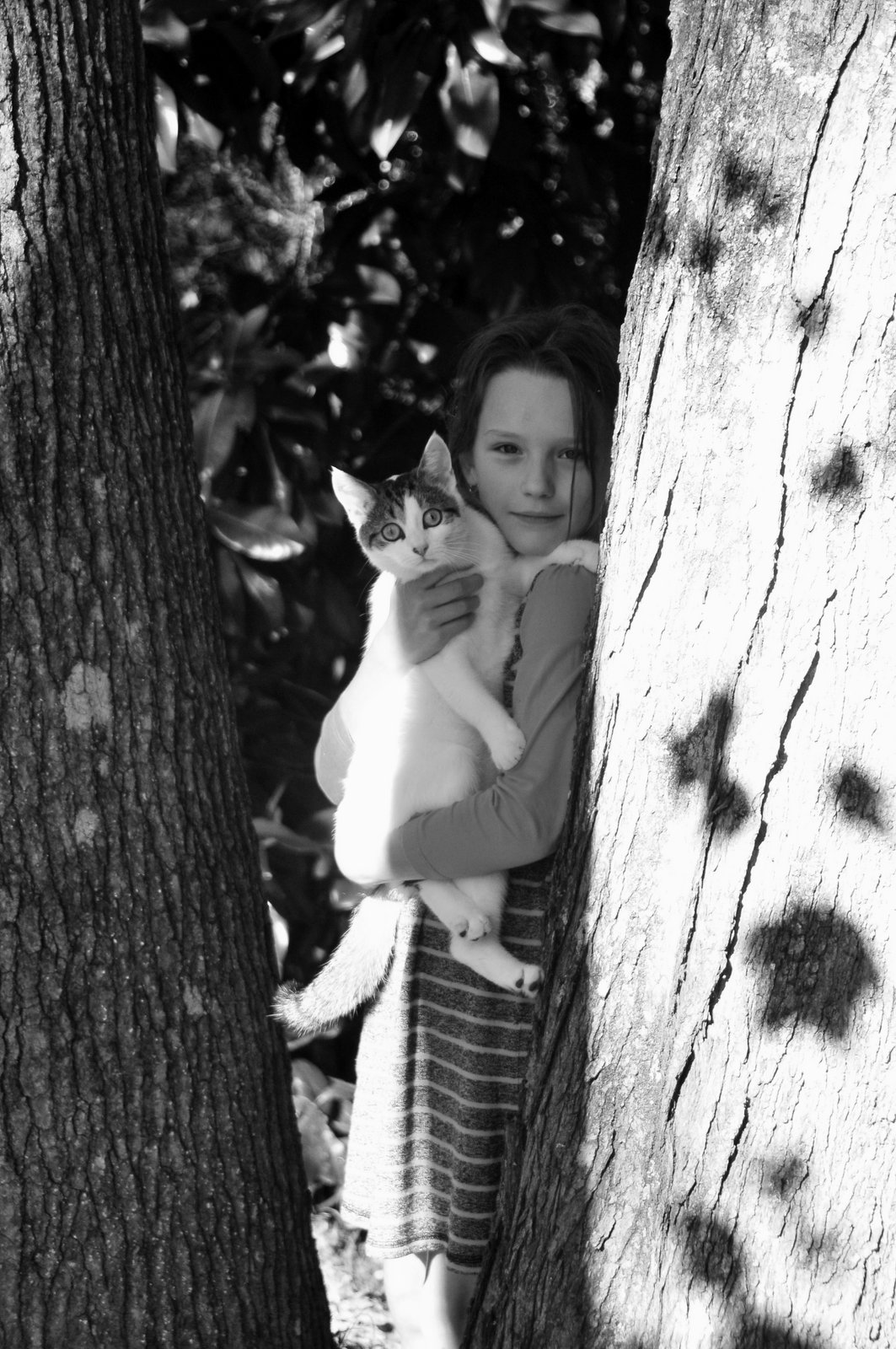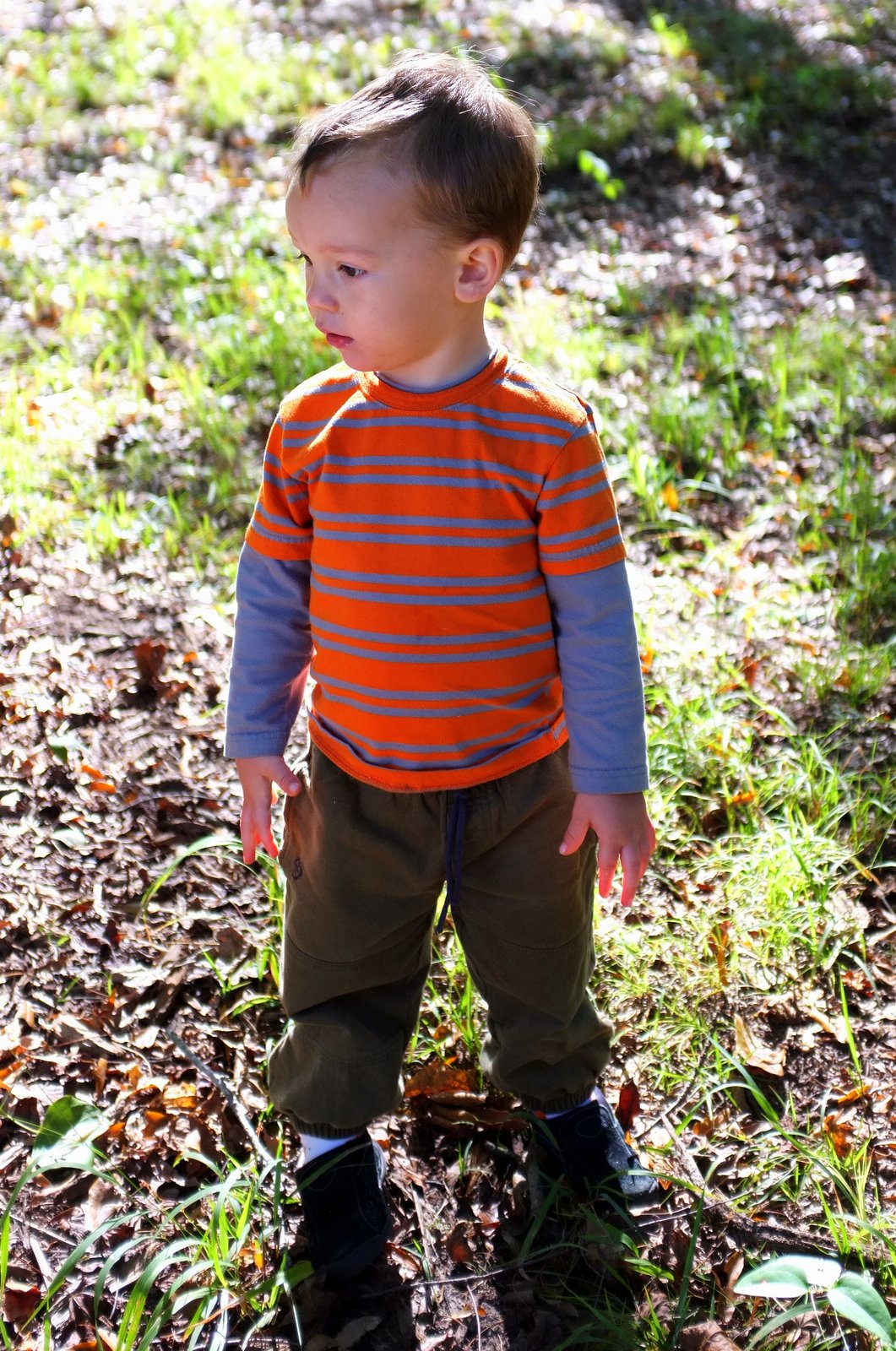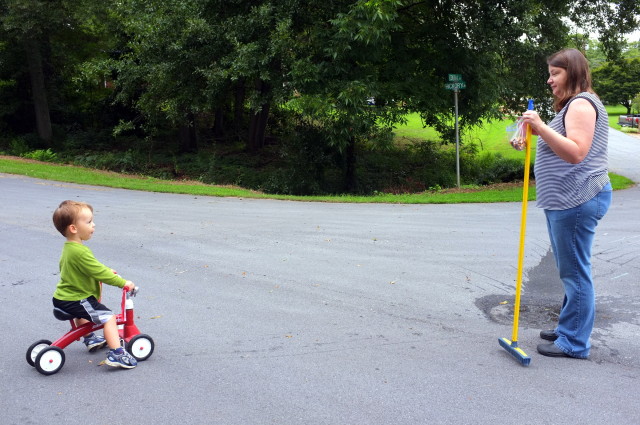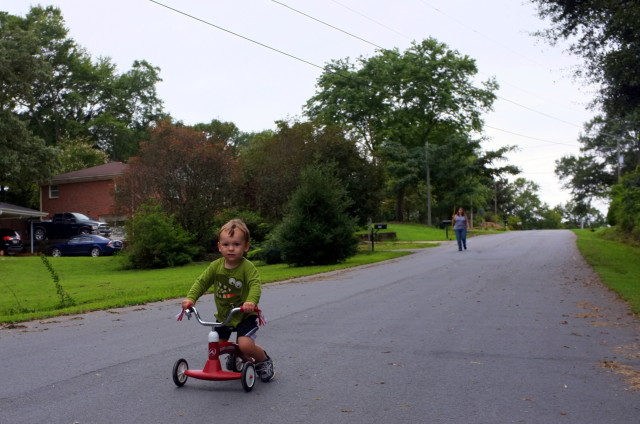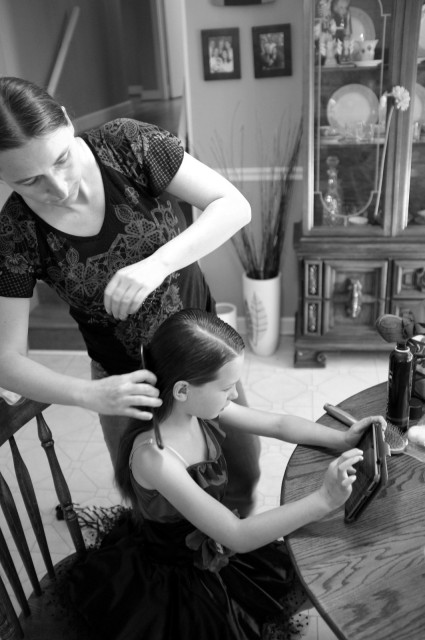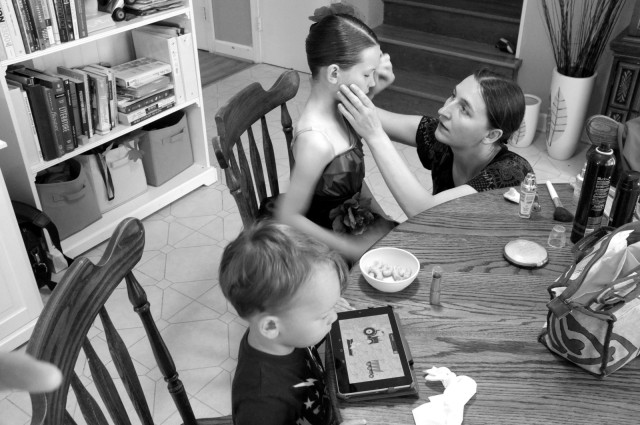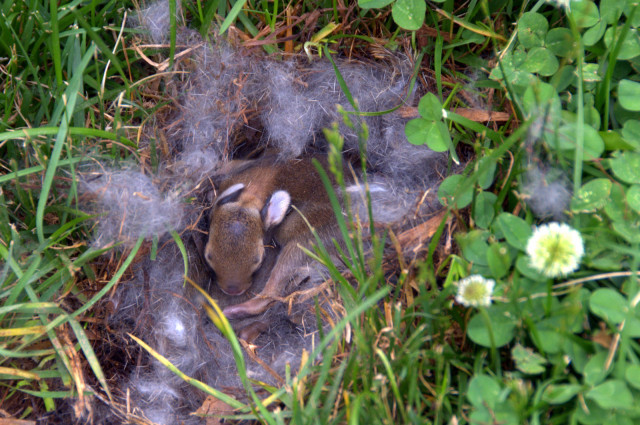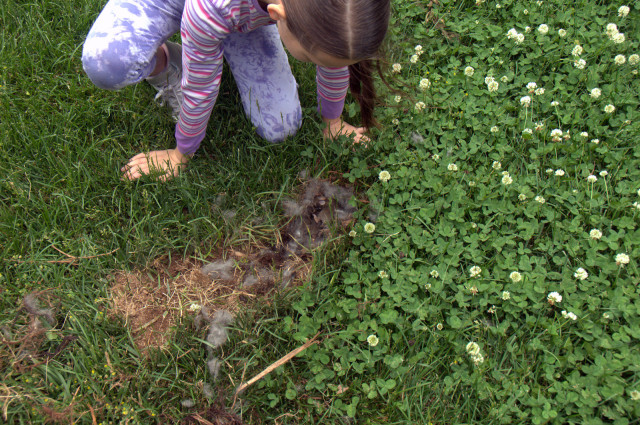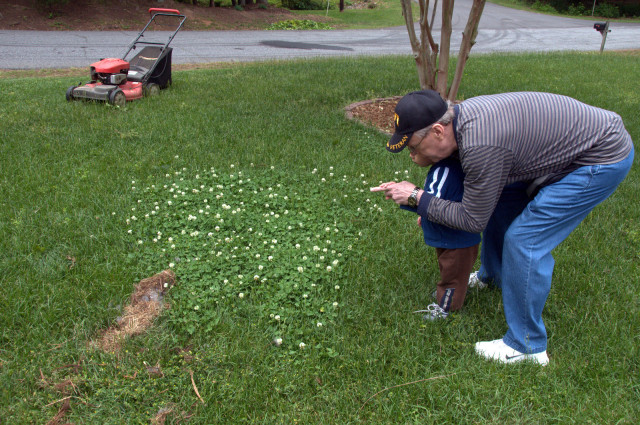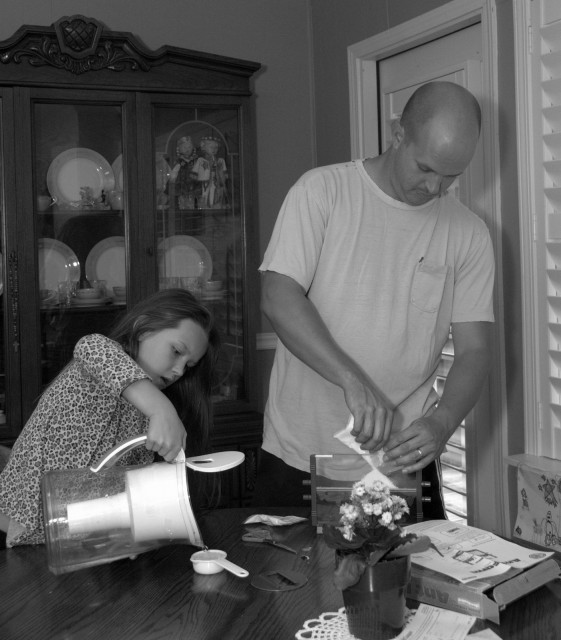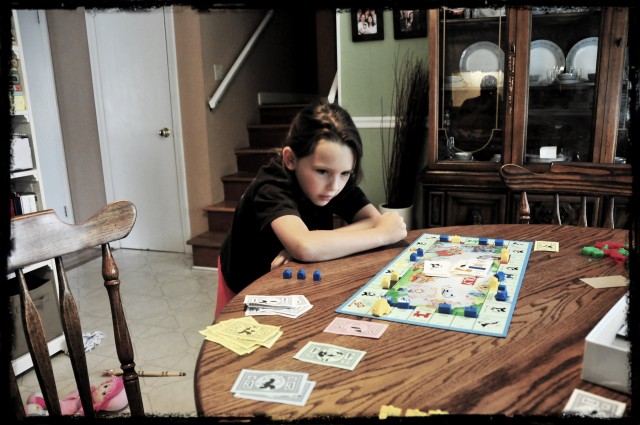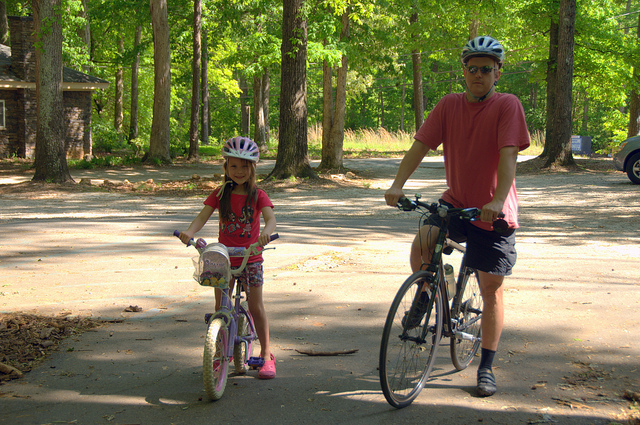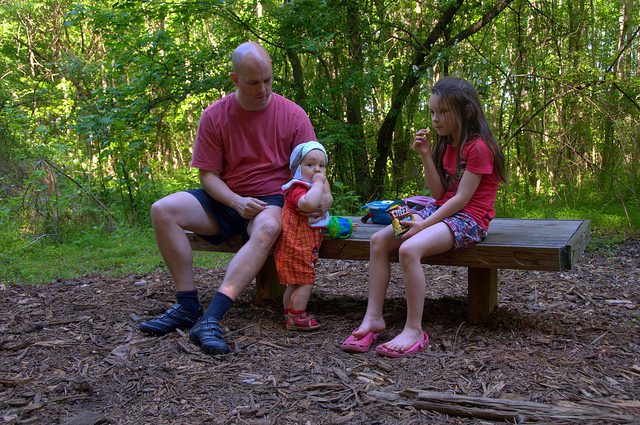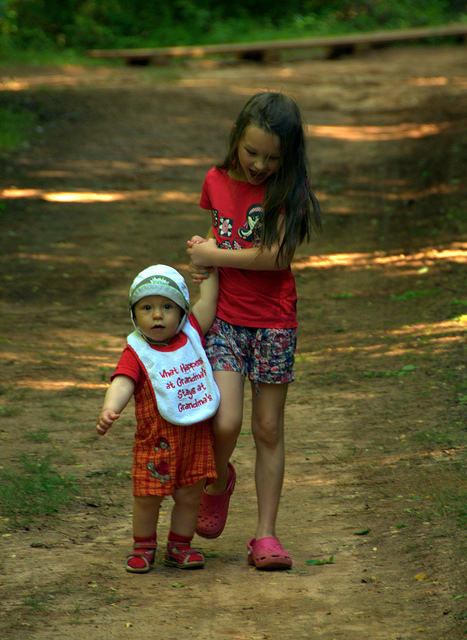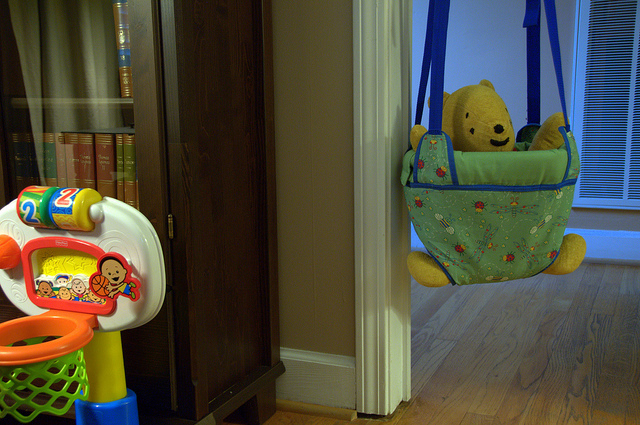“Daddy, I want to go to sleep.” And so I put up the book, turn off the light, and start the music.
The Boy rolls over on his back, and I rest my arm along his back, running my fingers through his hair gently. He stops moving, his breathing slows, and within moments, he’s asleep. Still I lie, continually stroking his head, rubbing his back. He takes a deep breath, lets it out, and sinks deeper.
W górze tyle gwiazd,
W dole tyle miast,
Gwiazdy miastu dają znać,
Że dzieci muszą spać.
Just listening to the Polish lullaby gets me thinking of all the twists and turns it took to get me to this moment in which I’m listening to a song in a language I never dreamed of learning, thinking how appropriate the lyrics — “Above, so many stars / below, so many cities. The stars let the cities know / That it’s time for children to sleep” — are some nights when the Boy tosses and turns and turns and tosses as my Polish wife puts our daughter to bed in the next room. All those little twists and turns, those seemingly insignificant decisions that led to meeting, returning, dancing, flying — all the things that led to the present moment, the present family.
“It was fate,” some might say. “It was the hand of God,” others might rejoin. “It was a happy sequence of accidents,” still others might insist. Fate, accident, God — whatever the cause, I’m grateful for all the steps, trips, and slips that led to this moment. Remembering that on a regular basis, I think, is the key to happiness.


